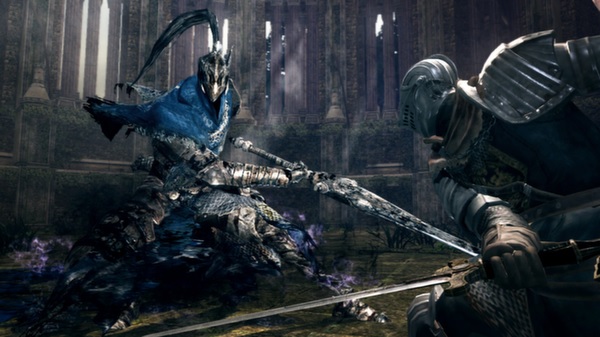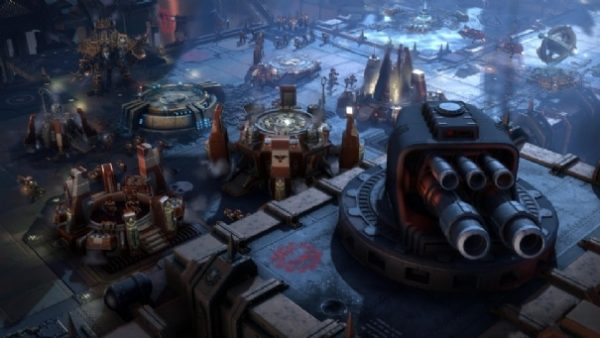Can we all stop talking about this stupid game already?
This is not a series about games you haven’t heard of. This is a series about games EVERYONE has heard of. Games that everyone has an opinion on, regardless of whether they’ve played them or not. Games whose actual qualities have been buried in a narrative, whether good or bad. Games that everyone always makes the exact same comments about. Games that are in desperate need of…a Second Opinion.
Well, this episode was inevitable. Even if people weren’t requesting it, few if any games have inspired as many ham-fisted hot takes as Dark Souls. A lot of people absolutely adore it because of its extreme difficulty, understated narrative, and unique multiplayer elements. And a lot of people absolutely despise it because of its extreme difficulty, understated narrative, and unique multiplayer elements. To those who like the game, all of its critics are just idiots who don’t understand what Dark Souls is all about and need to, in the parlance of the populace, “git gud.” And to the game’s detractors, everyone who likes it is totally dismissive of other opinions and is just choosing to overlook the game’s flaws because they think being good at a hard game makes them a smarter, better person than everyone else. Which kinda makes sense, I guess, given what I just said.
So this is going to be one of what I like to call the “everyone is wrong” episodes of Second Opinion, previously seen with Undertale and Team Fortress 2. My goal here is not to get you to pick one particular side, but rather to try to scrape away six years of hype and hate and look at the game through as objective a lens as possible. And then, God willing, we can all stop talking about Dark Souls. At least until the next one comes out.
Let’s start by debunking a few Dark Souls myths. Let’s start with an easy one: Dark Souls did not invent difficulty in videogames. This may seem obvious to anyone with a memory of gaming that goes back more than a few years, but it’s still an idea that seems to have been embraced by large swaths of the gaming community and the entertainment press alike. That’s why some journalists were recently calling the re-release of Crash Bandicoot, a game that came out in 1996, “Dark Soulsinspired.” Hard games aren’t just an old idea, they’re quite possibly the oldest idea – stand-up arcade games were usually designed to be as cruel and as difficult as possible so that you would put more quarters into the machine and make the arcade owners more money, which is why something like Gauntlet would literally start killing you just for existing.
Now, Dark Souls does present a very specific style of difficulty, as any fan will tell you, probably in a four-page essay in the comments of this very article. In Dark Souls – and I should specify that this article is ONLY talking about the first game – every death is your own fault. The game’s tightly-programmed combat system can be beaten, but only with repetition and skill, rewarding good players and punishing anyone who’s looking for an easy win.
Except…well, that’s not totally true, is it? And here comes our second debunking, because as much as some of us hate to admit it, the original Dark Souls does punish players for no reason sometimes. Much of the game’s difficulty arises in sections where a monster you can’t possibly see jumps out of nowhere and kills you, or you’re crushed to death by some environmental hazard. Hardcore fans will tell you that you just need to learn to be careful, but sometimes these pre-scripted events happen anyway. Dark Souls is a game that’s often teaching you things, but a lot of the time the thing that’s it’s teaching you is just “don’t walk here.”
And you know what makes that especially frustrating? The fact that every time you die you can lose hours of gameplay depending on how long it’s been since you hit a checkpoint. Yes, I know, this is a direct callback to older games, which would send you back to the beginning of the game after you ran out of lives or often after you got hit once by anything. But that doesn’t mean that it’s a good design choice – or at the very least, that it’s a universally good one. For one thing, those old games were usually a few hours long at best, and the ridiculous difficulty was a way to stretch out the otherwise barebones gameplay. That dynamic shifts entirely when you’re talking about a 40-hour RPG.
And the mentality of forcing you to restart when you die in Dark Souls is based on the idea that you shouldn’t move on to a new area until you’ve mastered the last area – mastered, not merely gotten lucky or savescummed your way past. In a game this hard, that’s not a terrible idea – it’s a way to make sure your players have some base level of competency before they take on the extremely hard stuff. But when I die in such a place that I’ve lost three hours of time – which is not at all unlikely – chances are good that it’s only the last 20 minutes or so that I need to remaster. The rest of the stuff I clearly had no problems getting past, and may have already played several times. This means that, yes, the “casul” players who complain about Dark Souls did get one thing right: the game is extremely repetitive.
Much of the game’s challenge is overcome not by pure skill, not by reflexes (the combat is too slow and laborious for that), but simply by memorization. You have to memorize the boss’ pattern before you can beat it (replaying an hour of generic skeleton killing on the way back.) You have to memorize which route has traps that will immediately kill you to death and which route is safe (replaying an hour of generic skeleton killing when you mess up.) Dark Souls is just one of those find-the-match card games with swords and depression, which…yeah, okay, that is kinda awesome, but it’s not exactly the most impressive achievement of the technological medium. Hardcore fans are right that anyone can eventually beat Dark Souls (myth confirmed), but it’s not a matter of skill, just a matter of time investment (myth busted.)
And some of us just don’t have the time to invest. Look, I’ve played the FromSoft games, and I enjoy the combat system a lot, but I literally do not have the time required to all the way beat one. And that doesn’t make me an inferior gamer. It just means that the game isn’t for me, just like one of my favorite games, The Beginner’s Guide, isn’t for a lot of other people. And that’s why it annoys me when people try to present Dark Souls – or any game, really – as the be-all end-all of hardcore gaming. It’s that Wade Watts “I’m a better nerd than you” gatekeeping crap all over again.
Back to the memorization thing. I’m not sure there’s a specific “myth” to bust here, but we need to talk about the problems with Dark Souls’ lategame. Who’s the boss that everyone remembers from the first Dark Souls? The Asylum Demon. Why? Because he’s the first one you encounter, and the combination of his distinct visual style and the level of challenge required to beat him makes him instantly stand out in your memory. You’ll be running, dodging, trying desperately to take him down one tiny, worthless attack at a time – and it feels like the culmination of the thrilling, difficult, often helpless gameplay of FromSoft’s premier RPG.
And then you got to the next boss, and…it’s the same thing. You dodge the lumbering attacks, run behind the boss, hit it two or three times and run away. And the next boss. And the next. The only time Dark Souls ever requires you to change things up is when you replace the regular attack with some gimmick, like jumping off a ledge to slam your sword down on top of it. After the Asylum Demon, boss fights feel less like a grand battle with a significant foe and more like a toll bridge you have to pass through to get back to the part of the game that actually requires strategy.
Except that the whole game really gets worse as you go on. At this point, you’ve fought the same skeletons and basic monsters a thousand times (thanks, artificial time-lengthening!) You’ve figured out all of their tricks, and the only thing that’s going to kill you is a momentary lapse in judgement or one of those random unavoidable murder traps. Which is probably why those are in the game in the first place, but that doesn’t make them any less of a cheap way to bloat the game’s runtime and make it seem harder than it actually is.
Now. Gameplay aside, there is one thing that Dark Souls does very well, and that’s atmosphere. Far from being just a gameplay-focused slug-a-thon as its detractors claim, Dark Souls has some really interesting worldbuilding and storytelling, most of which is built into the atmosphere and environments and is left to the player to discover for themselves, rather than being told through lengthy dialogue-laden cutscenes. Now, like the difficulty thing, Dark Souls didn’t invent this idea – from the original Half-Life to this year’s The Crow’s Eye, lots of games have used what’s called “ambient storytelling” to express their narratives in a way that books or movies can’t. But it’s something that’s always nice to see, and Dark Souls does do it particularly well.
What’s more, the game is very good at creating a particular sense of unease. It’s not out-and-out horror, like something like Outlast, but it’s also a far cry from the one-man-army power fantasy of most action games and RPGs. You’re not saving the world – it’s already broken, and you’re not its Chosen One, just a nondescript soldier facing forces you can’t understand. Even walking or swinging a sword is a tremendous effort, and while the random deaths, erasure of progress, and general cruelty of the game’s difficulty may not be particularly good game design, it brilliantly complements the themes of the story. Similarly, that’s why the environments are built with lots of corners and smothered in darkness – you feel like your poor, helpless avatar could be killed at any moment, and you probably will be.
But I’m still not convinced that there isn’t a bit of a disconnect between story and gameplay here. As I said, once you move into the lategame, you’re killing bigger and bigger bosses with ease, and the gameplay feels more rote than terrifying. I’ll willingly admit that this might be a matter of personal preference, but as far as feeling helpless goes, something like Pathologic that has almost no action or something like Spec Ops where the action is mostly out of your hands feels more like a deconstruction of player agency than a game where you kill demons with a big-ass sword. (Plus, Pathologic managed to make you feel helpless while still having a not-terrible save system.) And again, most of the elements that tie the story to the gameplay just make the latter feel frustrating, which makes the player less likely to actually become immersed in the world.
I realize this article must be frustrating for some of you. I mean, not those of you who just read the title and then ran to the comments to argue with whatever you thought my point was – you’re all having a great time. But some of you who’ve made it this far are probably trying to figure out whether or not I actually like Dark Souls. Every time I bring up a good point, I render it moot, every time I point out a flaw, I follow it up with a complement.
Here’s my position: Dark Souls is just a videogame. It is not the most difficult game ever made. It is not the greatest story ever told. It’s not a blight on the gaming landscape that poisons everything that tries to copy it, but nor is it the gold standard for interactive entertainment that every other developer needs to try and emulate. Its story is interesting and well-told, but it doesn’t mesh perfectly with the gameplay. Its combat is fun, fluid, and challenging, but it’s often unfair and in the first game it really overstays its welcome. I know it means a lot to a lot of people, and far be it from me to take that love away from you. But more than anything else, I just wish we’d stop talking about it like it’s the most important thing to happen to the industry in the last decade.
It’s just a videogame. Leave it at that.









